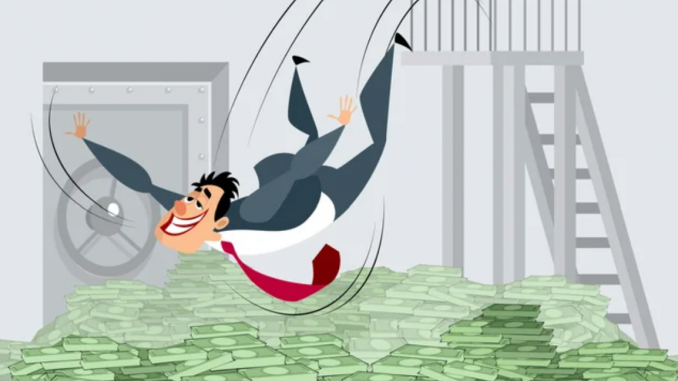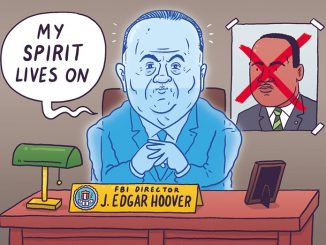
Most people calculate and report how much tax they owe by themselves instead of having the government determine it for them. But some people don’t tell the truth or are unable to calculate their income. As a result, there is a tax gap which is the difference between what the government should be collecting if everyone was telling the truth and what people actually pay.
According to the Treasury Department, the main reason for the tax gap is because third parties do not report all of a person’s income so they are relying on the honor system, which is not always reliable. They believe that if taxpayers knew that the IRS knows what they know, they will more likely file an accurate return and pay their fair share.
President Joe Biden announced a number of proposals to close the tax gap. One of them would require banks to report every customer’s total deposits and withdrawals in their accounts.
At first glance, the proposal seems fair. After all, W-2 employees’ income is reported to the IRS. Why should business owners get a pass? Sure, there are Form 1099s which report nonemployee income to the IRS, but not everyone is required to issue a 1099. So the bank information is more likely to show what businesses truly made as opposed to what they reported on their tax returns.
Banks are opposed to this measure as it will impose compliance costs and may strain relationships with existing clients who value privacy. Smaller banks and credit unions that do not have the technical expertise nor financial resources to comply may have to close. Banks already have to report certain transactions to the government. They generally have to report transactions exceeding $10,000. In addition, they submit “suspicious activity reports” if they think that one of their customers could be engaging in illegal activity.
Most people are not going to like the government peeking around in their bank account. So the Biden administration and the Treasury Department assures the public that they are focusing on high-end evasion. They also state that audit rates will not increase for those who earn less than $400,000. While this sounds reassuring, what they do not say is that the bank account sweeps will only target the wealthy. They do state that the annual reporting will not be required for accounts below a low de minimis gross flow threshold of under $600.
Most monthly unemployment payments exceed $600. So it is safe to assume that almost everyone’s bank account activities must be reported. You’re not exempted just because you have a full-time W-2 employee job. The government will want to know about your side hustle too.
Also, the proposal is only interested in total inflows and outflows from an account and not specific transactions. So don’t worry, the government won’t know about your OnlyFans subscriptions.
So will this proposal work? It’s possible. There are some dishonest people who will think twice about reporting fake numbers if the IRS can see what’s going on in their bank accounts. But on the other hand, not every deposit is taxable income. Some deposits are loans which have been plentiful recently due to the increase in the SBA’s Economic Injury Disaster Loans and the Paycheck Protection Program forgivable loans. Others could be transfers from one account to another. Some of these can be explained. But others may not (or the auditor may not believe them) which can result in protracted disputes and paying excessive taxes on non-income.
And will state tax agencies also want a piece of the action? They will probably have access to this information through their information sharing programs with the IRS. So unless states are prohibited from accessing this information, this could trigger an increase in income tax audits by state tax agencies who are not bound by Biden’s promise not to harass the middle class.
Biden’s proposal to force banks to disclose their customers’ deposits and withdrawals is being pitched as a way to catch and deter wealthy tax cheats. But the very low $600 minimum flow threshold will instead result in possibly everyone’s bank account being subject to disclosure. While they promise not to increase the audit rates of the little guy, how are they going to make sure that someone is not falsely claiming to be the little guy? This might result in some rich tax evaders getting caught. But a regular Joe may get an unexpected letter from the IRS because of a loan he got from his parents or because he transferred money from his savings account one too many times. Are we going to have to remember and document every bank transaction we do in the name of tax equality?
*story by Above The Law


